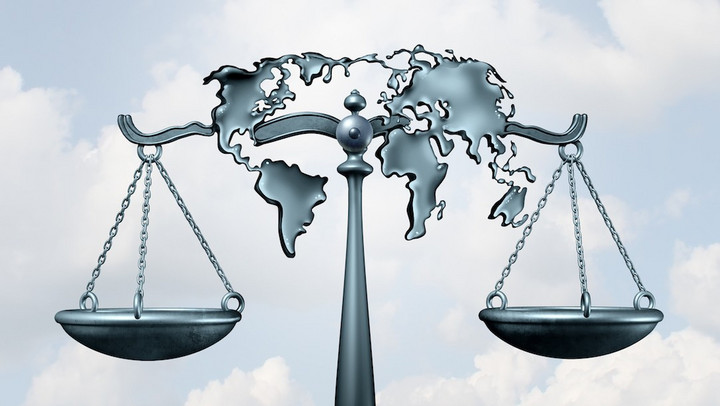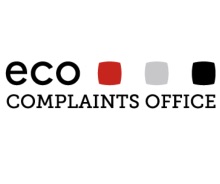When national law enters international space
More and more countries are searching for ways to make their own national laws effective in borderless cyberspace. Alexandra Koch-Skiba, Head of the eco Complaints Office, on a new German law that will affect platform providers worldwide.

© wildpixel | istockphoto.com
• German national law NetzDG on law enforcement in social networks to have global impact on Internet industry
• Platform providers around the world need to be informed and aware of liability risks and steep fines for non-compliance
• eco webinar on preparing for NetzDG on 20 September open to eco Members
Operating internationally can be challenging, when companies need to ensure they are complying with sometimes conflicting national laws. For Internet infrastructure operators and service providers, it’s also unavoidable – in the borderless digital environment. And for the intermediaries, it can be particularly difficult when it comes to dealing with content that is illegal in one land, but is legally hosted in another land.
This situation is set to become much more complicated as of October 2017. A new law coming into effect in Germany, the Network Enforcement Law (NetzDG), will impact “platform providers” within and outside of Germany. Providers that operate profit-driven platforms in the Internet bearing German reference will be subject to the new law, if the platform is designed a) for users to share any content with one another, or b) to make it publicly accessible.
Affecting platform providers large and small, around the world
This means that platform providers large and small, based anywhere in the world, can be caught up in this legislation – a few classic examples would be Facebook, YouTube and Twitter, which are neither based in Germany, nor is the content hosted in Germany. But also other platform providers are affected, for example, typical social networks, blogs, video platforms, discussion forums, etc.
But this is not simply a concern for the platform providers themselves: All other intermediaries should also be aware of what is going on, as there are discussions on liability in general.
German hate speech laws
The law has taken shape as a way of combatting illegal hate speech online in Germany. Despite very strong freedom of opinion and speech rights embedded in the German constitution, certain types of utterances – namely, hate speech and incitement of the masses, as well as the use of Nazi symbols – are illegal, and perpetrators can face stiff fines and jail terms. To combat the proliferation of such utterances in social networks, the Task Force Hate Speech was established by the Federal Ministry for Justice and Consumer Protection in autumn 2015. The ministry also gave the organization jugendschutz.net (the German national competence center for youth protection online) the responsibility of monitoring performance in regard to report-handling by large social networks, but the results were not sufficient in the eyes of the Ministry for Justice.
Following this, the Government developed a draft law to facilitate law enforcement in social networks in regard to “hate speech”, as well as other criminal activities online. Despite the general consensus that hate speech as defined in criminal law and other offenses in the Internet should be prosecuted, the legislation was criticized from many angles, regarding both its content and its formulation. eco fought hard to have the law dropped: According to Oliver Süme, eco Director of Policy and Law, “When industry, academia, and a multitude of representatives of political institutions at the federal, European, and international levels speak up in criticism against this proposed law, there is a reason”.
Unfortunately, the law has been adopted, and now it may well affect your business.
Requirements under the NetzDG law include:
- All platform providers will be required to nominate an “authorized recipient” within Germany to receive communications from the German law enforcement agencies or German courts
For platforms that have at least 2 million registered German users,
- Regular reporting on the number of complaints and the handling of complaints about illegal content
- Establishment and operation of complaint management processes (including deadlines for removal of illegal content)
What are the consequences?
The law entails stiff fines for non-compliance. If a provider violates the obligation to nominate an authorized recipient within Germany or does not react (in time) to requests for information, they can be fined up to € 500,000. Violations with regard to the reporting and complaint management obligations can result in fines of up to € 5,000,000.
Webinar for eco members: Preparing for NetzDG
eco Members are invited to participate in the Webinar “Law Enforcement in Social Networks – Impact of New German Law on Platform Providers” put on by the eco Complaints Office on 20 September 2017 to look at the implication of the law for Internet industry companies. The webinar will take place in English.
Register for the webinar by contacting judith.ellis@eco.de
Find the NetzDG FAQs here: go.eco.de/netzdg-faqs
Alexandra Koch-Skiba has been registered as an attorney since 2005. During her legal education she specialized in criminal law and the law of the protection of minors. As the Head of eco’s Complaints Office, she is in charge of the hotline’s management and of supporting the report handling, in particular in regard to legal issues. She represents the hotline at the European and national level, e.g. at European Networks, when liaising with law enforcement and other relevant stakeholders, and at events. Moreover she represents eco on topics related to youth protection on the Internet.



